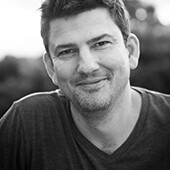Is the human body a piece of property? We object to the sale of whole human beings, but what about cases where a person merely wants to sell a part of her body? If I am free to donate my organs, why am I not free to sell them as well?
Is the human body a piece of property? We certainly object to the sale of whole human beings, but what about cases where a person merely wants to sell a part of her body? If I am free to donate my organs, why am I not free to sell them as well? For Professor Anne Phillips, the problem lies in treating the body as property, analogous to any other commodity.
In this episode of Public Ethics Radio, we explore issues of ownership and the body. These questions do not end with organ sales. What limits, for instance, should we put on the sale of bodily services like surrogacy? Should trade in these services be limited, in order to prevent the poor from being exploited by the rich? Should organ markets be legalized and regulated? We discuss these questions with Anne Phillips, Professor of Political Gender and Gender Theory at the London School of Economics.





